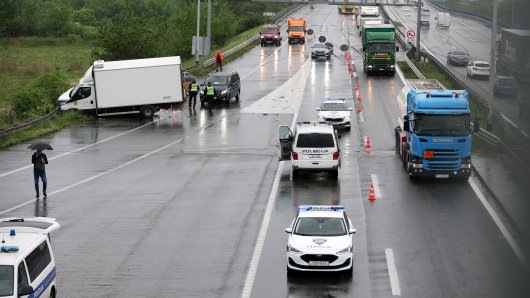The issue of Palestinian statehood is complex and Croatia has not made the final decision yet as to how it will vote in the UN in the autumn but will adopt it in consultation with partners from Europe and the US, Croatian Foreign Minister Gordan Jandrokovic said in Zagreb on Monday at a press conference with his Israeli counterpart Avigdor Lieberman.
The Palestinians have announced that they will ask for the recognition of their state in the UN in September. The Israeli media have announced that Lieberman, in a third visit to Croatia in the last 18 months, has arrived to lobby so that Croatia does not vote for the Palestinian request. After Croatia, he will visit Albania and Austria, while next week Israeli President Benjamin Netanyahu will visit Romania, Bulgaria, Poland and Hungary.
Given the sensitivity and complexity of the subject, Croatia is closely following what is going on and will adopt the final decision after consultations with allies in the European Union and the United States, said Jandrokovic.
The Israeli government has said many times that direct negotiations are necessary, without any conditions being made, said Lieberman, adding that the Palestinians were making unilateral moves which undermined the peace process.
Any unilateral move by the Palestinian National Authority brings more and more tension and problems, he said, adding that perhaps for some elements in the Arab that was a way to avoid reality and the problems at home.
Lieberman said there was no link between the state of affairs in the Arab world and Israeli-Palestinian relations.
Croatia-Israel relations are better than ever, said Jandrokovic, welcoming Knesset Speaker Reuven Rivlin's attendance at the upcoming Croatia Summit in Dubrovnik.
The two ministers said they were happy that Croatia was this year for the first time among the victorious countries in World War Two which the Yad Vashem Holocaust Museum invited to Israel to mark Victory in Europe Day.
It is necessary to strengthen economic cooperation, Jandrokovic said, adding the increasingly frequent contacts between business people would boost trade and investment.
Both countries want all the processes in Southeast Europe and the Middle East to be solved peacefully and for both regions to make progress, he added.




































